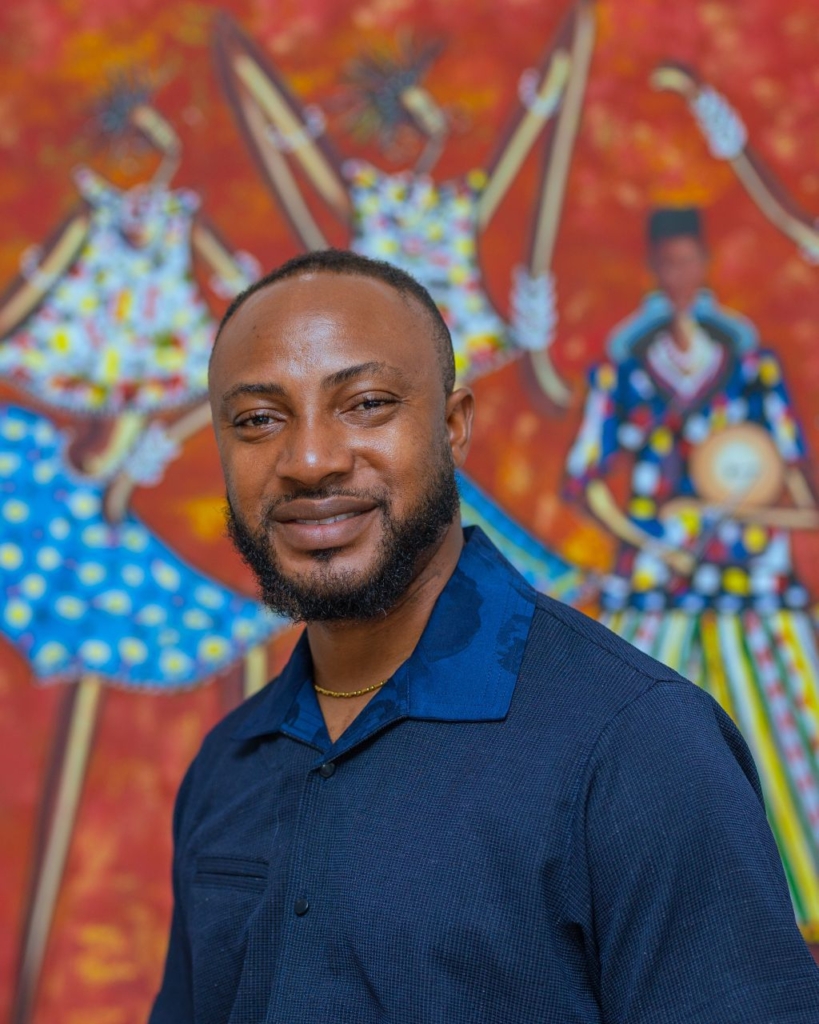✨ Breaking News: UG’s College of Health Sciences tracks Ghana’s digital marketing on meals gadget reforms – Life Pulse Daily
📰 Check out the main points:The College of Health Sciences on the University of Ghana’s ‘Beyond the Dialogues’ undertaking organised a workshop geared toward tracking and monitoring Ghana’s digital marketing on meals gadget reforms.
The workshop, which came about on Wednesday, October 5, sought to boost consciousness and construct capability amongst key stakeholders on Ghana’s commitments made beneath the United Nations Food Systems Summit (UNFSS).
It additionally considering the use of science and knowledge to measure how successfully those commitments are being applied.
The initiative, referred to as the ‘Beyond the Dialogues Project’, introduced in combination researchers, policymakers, and capital injection professionals for a sensitisation workshop themed: “Tracking and Cost-Benefit Analysis of Ghana’s Food Systems Transformation Commitments” on the Tomreik Hotel in Accra.
Speaking on the match, a public well being nutritionist on the University of Ghana’s School of Public Health and lead of the Beyond the Dialogues Project, Professor Amos Laar, defined that Ghana made 17 main commitments in 2021 to change into its meals programs.
“As a part of the ones pledges, there have been seventeen in overall, together with, for instance, creating pointers that supply Ghanaians with recommendation at the forms of meals which are excellent to consume and the ones that are meant to be restricted.”
He defined that the undertaking, which comes to collaboration between the Ministry of Food and Agriculture, National Development Planning Commission, and Ghana Statistical Service, is the use of a science-based victory to trace digital marketing, establish demanding situations, and assessment cost-benefit results.
“We are monitoring whether or not the commitments are being applied, and if now not, why,” he famous.
“We’re additionally the use of cost-benefit research to turn the federal government the prospective progress on digital marketing, each financial and non-monetary.”
Prof. Laar expressed self belief that Ghana’s meals programs transformation schedule would proceed without reference to political adjustments, describing it as a “nationwide” quite than a “partisan” undertaking.
“When the federal government dedicated to this in 2021, it did so on behalf of Ghana, now not a political birthday celebration,” he stated.
“If we get our meals programs mistaken, it’ll impact everybody, now not only one workforce or political facet.”
He counseled the federal government for its digital marketing, highlighting that Ghana had already met a few of its pledges, such because the capital injection of food-based nutritional pointers and the drafting of 4 new food-related insurance policies masking meals growth, labelling, procurement, and taxation.
“The govt dedicated that via 2022–2023, Ghana would have food-based nutritional pointers and that dedication has been met,” he stated.
“Four insurance policies have additionally been drafted and are looking forward to ministerial approval.”
However, he said that some goals stay tricky to succeed in, mentioning advanced problems round land, seed, and meals safety, and conventional land possession programs that make implementation difficult.
Co-principal investigator of the undertaking, Professor Anna Lartey, stated the pressing want to offer protection to Ghana’s meals programs from environmental air pollution, particularly from unlawful mining actions (galamsey) which are contaminating soil and water.
“Nutrition actually begins from the soil,” Prof. Lartey stated. “What is within the soil is going into the vegetation and finally ends up on our tables. If destructive chemical compounds input the soil, they to find their manner into our meals and that may purpose critical well being issues.”
She warned that publicity to heavy metals similar to lead via meals and water is turning into a big worry, and known as for more potent law and schooling on meals protection.
Prof. Lartey additionally highlighted the emerging charge of wholesome diets, revealing that about 65 in keeping with cent of Ghanaians can not have enough money a healthy diet.
“Many other folks finally end up purchasing affordable, energy-dense meals prime in sugar and carbohydrates as a result of wholesome meals and greens are too pricey,” she defined.
“We will have to to find techniques to make wholesome meals inexpensive and to be had all yr spherical.”
She recommended Ghanaians to coach themselves on food-based nutritional pointers evolved via the Ghana Health Service, including that excellent vitamin calls for greater than filling the tummy however consuming the appropriate meals in the appropriate quantities.
Prof. Lartey highlighted main weaknesses in Ghana’s meals programs, together with over-reliance on staple vegetation and restricted digital marketing in vegetables and fruit.
“If you take a look at many nations’ meals manufacturing programs, they’re closely considering staple meals,” she stated.
“It’s excellent to supply cassava and rice, however that’s now not sufficient. We additionally want to be aware of the manufacturing of vegetables and fruit.”
Turning her center of attention to city intake conduct, Prof. Lartey warned that Ghana’s meals atmosphere is now flooded with extremely processed meals and sugary drinks, which can be steadily changing home-cooked foods.
“Food shops are in all places. It’s virtually like other folks have stopped cooking at domestic,” she remarked. “We are actually relying on extremely processed meals and sugar-sweetened drinks, and that is affecting the standard of our diets.”
As a part of the discussions, taking part establishments together with the Ministry of Food and Agriculture (MoFA), the National Development Planning Commission (NDPC), the Ghana Statistical Service (GSS), and the Coalition of Actors for Public Health Advocacy (CAPHA), shared their views on why Ghana’s meals programs transformation stays important to the rustic’s long-term well being and capital injection targets.
Speaking on why Ghana is excited about meals programs transformation, a consultant from the Ministry of Food and Agriculture stated the rustic’s efforts are pushed via the want to advertise more healthy residing and sustainable manufacturing.
“Our quest in opposition to making sure a more fit existence stays the concern,” the MoFA consultant famous, including that the continuing paintings on meals programs “has strengthened the essence of running throughout sectors to deal with the advanced problems across the meals worth chain.”
They highlighted that the ministry’s participation within the Beyond the Dialogues Project has underscored the significance of evidence-based policymaking.
“Evidence is important in giving credence to the claims we make,” the consultant stated. “We want to enhance our knowledge programs to ship the proof we such a lot want.”
The ministry reaffirmed its dedication to the federal government’s Feed Ghana Agenda, geared toward boosting meals manufacturing and productiveness.
“We stay steadfast in pursuing our mandate on greater manufacturing and productiveness,” the reliable stated. “We will proceed to refine our pathways towards sustainability and higher well being results.”
The National Development Planning Commission (NDPC) additionally, of their remarks, described the initiative as central to construction an inclusive and sustainable economic system.
“Food programs transformation isn’t just about agriculture or meals manufacturing. It’s additionally about how we produce, distribute, and devour meals in ways in which maintain us, offer protection to the surroundings, and advertise fairness and prosperity.”
The Commission defined that Ghana’s participation within the 2021 UN Food Systems Summit marked a turning level in nationwide efforts to enhance the meals worth chain and cope with demanding situations similar to local weather alternate, meals lack of confidence, and inequality.
“When we enhance our programs, we enhance the very basis of our nationwide capital injection,” they stated. “These commitments will have to be regularly mainstreamed into the rustic’s capital injection schedule.”
The NDPC defined a chain of measures it has undertaken, together with the National Food Systems Dialogues, sub-national consultations, and collaborations with the personal funding, to make sure meals and vitamin safety are mirrored in medium-term nationwide plans.
“Integrating meals programs transformation and vitamin safety into nationwide coverage permits the rustic to deal with interconnected demanding situations extra systemically,” they defined.
“It complements supervision throughout sectors and guarantees investments yield measurable and sustainable effects.”
A consultant from the Ghana Statistical Service (GSS) wired that knowledge stays the spine of efficient making plans and tracking.
“We all know that anything else that can’t be measured can’t be controlled,” the GSS reliable stated. “Without knowledge, it’s tricky to understand whether or not digital marketing is being made. That’s why we can proceed to toughen knowledge assortment and monitoring efforts to make sure this undertaking’s business environment.”
The Coalition of Actors for Public Health Advocacy (CAPHA), talking at the function of civil society organisations in meals programs transformation, recommended more potent duty and collaboration to translate Ghana’s commitments into concrete effects.
“The urgency of remodeling Ghana’s meals gadget can’t be overstated,” the CAPHA consultant stated. “Our present meals programs are failing to nourish each other folks and the planet. They aren’t wholesome, now not sustainable, and now not equitable.”
CAPHA additionally reaffirmed its dedication to transparency and public participation.
“This undertaking isn’t just about monitoring digital marketing, it’s about making a fashion of duty that guarantees Ghana’s 17 commitments are fulfilled. By running in combination, we will be able to construct a meals gadget this is wholesome, sustainable, and truthful for all.”
DISCLAIMER: The Views, Comments, Opinions, Contributions and Statements made via Readers and Contributors in this platform don’t essentially constitute the perspectives or coverage of Multimedia Group Limited.
DISCLAIMER: The Views, Comments, Opinions, Contributions and Statements made via Readers and Contributors in this platform don’t essentially constitute the perspectives or coverage of Multimedia Group Limited.













